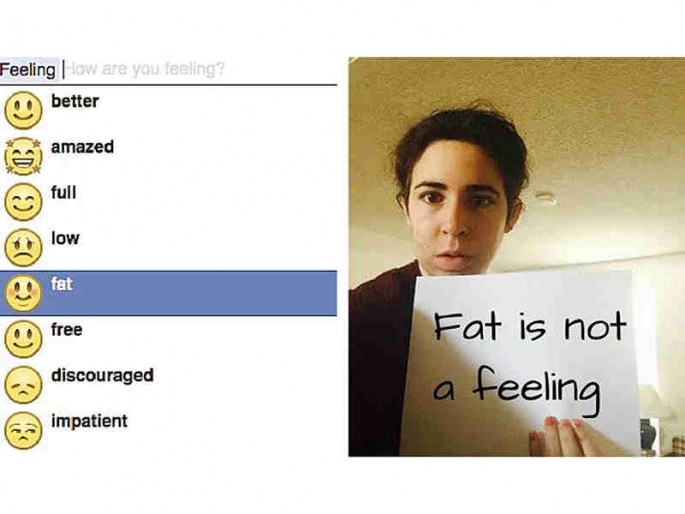Following the bitter backlash, Facebook pulled the "feeling fat" emoji from its list of status updates on Tuesday. The step has been taken after it was brought to notice to the social media that such an emoji will normalize the online body shaming and bullying.
"We've heard from our community that listing 'feeling fat' as an option for status updates could reinforce negative body image, particularly for people struggling with eating disorders. So we're going to remove 'feeling fat' from the list of options," a Facebook spokesperson told TIME in an emailed statement.
The group Endangered Bodies in tie-up with National Eating Disorders Week was running a campaign so as to bring to notice the fact that fat is not a feeling and "offering such an option could be especially problematic for people who struggle with eating disorders."
Catherine Weingarten, a 24-year-old Ohio student, was running the U.S. leg of the digital campaign. It was signed by more than 16,000 users who wanted the feeling fat emoji should be removed immediately, Washington Post reported.
Weingarten admittedly felt that when some users set their status to "feeling fat," they seeem to be making fun of people who consider themselves to be overweight. This may also hurt people with eating disorders or some medical condition.
Once Facebook announced its decision to take down the 'feeling fat' emoji, Weingarten expressed her happiness and excitement by saying that she feels happy to eliminate one form of body shaming on the social media.
Facebook has emerged as one of the most powerful social media in the past decade. The platform has 890 million users and the number is constantly increasing, which makes it an influential media.



























